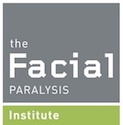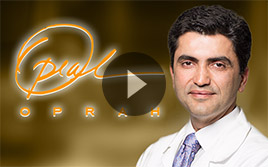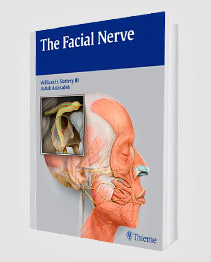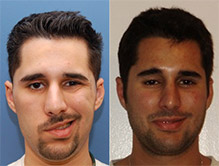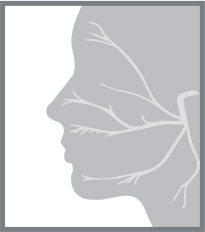How to Fix a Crooked Smile: Here’s What You Need to Know
Facial paralysis treatments are available to help improve the effects of partial facial weakness or permanent paralysis. In addition, there are many types of lower facial reanimation that can help a facial paralysis patient fix their smile.
What Causes a Crooked Smile?
Research indicates lower-face asymmetry can contribute to a crooked smile. Lower-face asymmetry occurs when a patient can bite their teeth forward only on one side of the face. The issue can develop in the early stages of pregnancy and impact a child’s lower jaw development in the first few years of their life.
Genetics can play a role in a crooked smile as well. Those with a blood relative who has a crooked jaw, crooked teeth, or an overbite face a greater risk of experiencing these problems during their lifetime.
Let’s not forget about the impact of facial palsy, either. For facial palsy patients, teeth on the paralyzed side of the mouth are increasingly susceptible to decay. The gums on this side of the mouth are more prone to disease, too. Thus, oral health issues can escalate, to the point where tooth decay occurs. In this instance, facial palsy patients are susceptible to a crooked smile.
A Closer Look at How to Fix a Crooked Smile
A crooked smile can be corrected in its early stages. Typically, going to a dentist on a regular basis enables a patient to address plaque build-up and other oral health problems that otherwise can contribute to a crooked smile.
The ideal treatment for a crooked smile varies based on the patient’s oral health issues and other factors. Braces, a mouth guard, and other dental treatments can be used to straighten the teeth. Or, surgical procedures may be required to correct crooked teeth.
How to Fix Your Smile Before It’s Too Late
At the first sign of tooth issues that lead to a crooked smile, meet with a dentist. From here, a patient can undergo an evaluation to find out why their teeth appear crooked. Then, the dentist can provide their patient with a personalized treatment for how to fix their smile.
In the event that a crooked smile occurs due to long-lasting facial paralysis, consult with facial nerve expert Dr. Babak Azizzadeh of The Facial Paralysis Institute. At this time, Dr. Azizzadeh can perform a physical examination to determine the etiology of his patient’s facial paralysis.
What to Expect During a Facial Paralysis Treatment Consultation with Dr. Azizzadeh
As part of a physical examination, Dr. Azizzadeh will study his patient’s eyes for narrowing and assess their facial movements in relation to each of the facial nerve branches. Dr. Azizzadeh also will ask his patient to raise their eyebrows, wrinkle their nose, smile, and perform other facial movements.
Several facial paralysis issues will need to be clarified during a patient evaluation, including:
- Severity of Facial Paralysis and Synkinesis: Patients with partial facial paralysis who have synkinesis often will require a different treatment protocol than those who suffer complete facial paralysis.
- Presence of Bell’s Palsy: If a patient is experiencing Bell’s palsy, it is important to wait at least a year before making any treatment decisions. This is due to the fact that in 85% of Bell’s palsy cases, a patient’s symptoms will go away on their own.
- Duration of Facial Palsy: The duration of facial palsy may dictate treatment, as the majority of surgical interventions are performed after the regenerative functions of the nerve have been established (about one year).
A physical examination provides Dr. Azizzadeh with the necessary information to understand the history behind a person’s facial paralysis. After the examination, he can offer facial reanimation recommendations.
Plastic Surgery to Fix a Smile: Is It the Best Treatment Option?
Dr. Azizzadeh won’t necessarily recommend plastic surgery for every patient dealing with facial paralysis and a crooked smile. Instead, Dr. Azizzadeh performs an in-depth evaluation of his patient. Dr. Azizzadeh wants to learn as much as possible about his patient’s facial paralysis. He can then use these insights to find a safe, effective treatment that simultaneously corrects his patient’s facial paralysis and improves their smile.
If Dr. Azizzadeh believes his patient can benefit from plastic surgery, he can educate him or her about lower facial reanimation procedures. The patient can ask questions about these procedures and gain insights into the benefits and risks associated with them. That way, the patient can make an informed decision about whether to move forward with a lower facial reanimation procedure.
What Is Lower Facial Reanimation?
Several factors may result in facial paralysis, including:
- Congenital issues
- Infection
- Metabolic problems
- Trauma
Furthermore, facial paralysis commonly results in aesthetic, functional, and psychosocial disease, along with facial asymmetry while an individual is at rest and/or moving.
In most cases, facial paralysis patients deal with oral incompetence, facial asymmetry, and the inability to make a smile. However, lower facial reanimation has been shown to help facial paralysis patients improve facial symmetry and reduce functional deficits.
Some of the most common facial reanimation treatments include:
- Surgical Intervention: Consists of static and dynamic reanimation. Static reanimation focuses on improving an individual’s facial symmetry at rest and does not spontaneously reanimate the face. Comparatively, dynamic reanimation is divided into volitional (patient is aware of facial movements) and spontaneous (patient is unaware of facial movements) procedures.
- Static Slings: Improves facial symmetry and reduces drooling, biting of the inner gum and other facial paralysis side effects. Static slings do not address the smile mechanism directly but can help enhance a patient’s perception of the smile and face.
- Temporalis Transfer: Involves attaching a portion of the temporalis muscle to the oral commissure. During a temporalis transfer, the motor branches of the trigeminal nerve are activated to recreate the smile mechanism.
- Non-Surgical Intervention: Includes the use of neuromodulators, injectable fillers and neuromuscular rehabilitation. Usually, the best candidates for non-surgical intervention are individuals with synkinesis, partial long-term paralysis, and congenital unilateral lower lip palsy (CULLP).
Lower facial reanimation can help a facial paralysis patient fix their smile, but it is important to note that a facial paralysis patient must be evaluated before treatment.
Discover How to Fix a Lopsided Smile Issues — Partner with Dr. Azizzadeh
Dr. Azizzadeh completed a sub-specialized fellowship in facial plastic and reconstructive surgery at Harvard Medical School with special emphasis on the facial nerve and facial reanimation. He is a world-leader in facial nerve surgery, and is the only facial nerve expert to be featured on The Oprah Winfrey show for his expertise. And, Dr. Azizzadeh is available to help patients treat facial paralysis that contributes to a lopsided smile.
There is no need to wait to explore treatment options for facial paralysis that causes a crooked smile. To learn more or to request a free consultation with Dr. Azizzadeh, please contact us online or call us today at (310) 657-2203.
Request your consultation with Dr. Azizzadeh today
Call us at (310) 657-2203 to schedule an appointment.
Schedule a Consultation